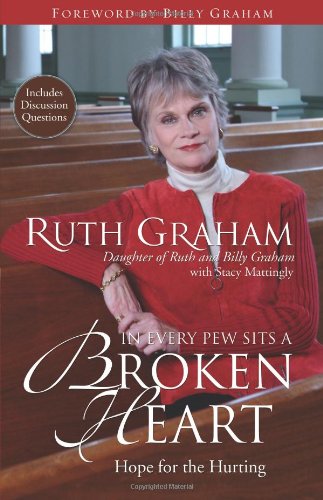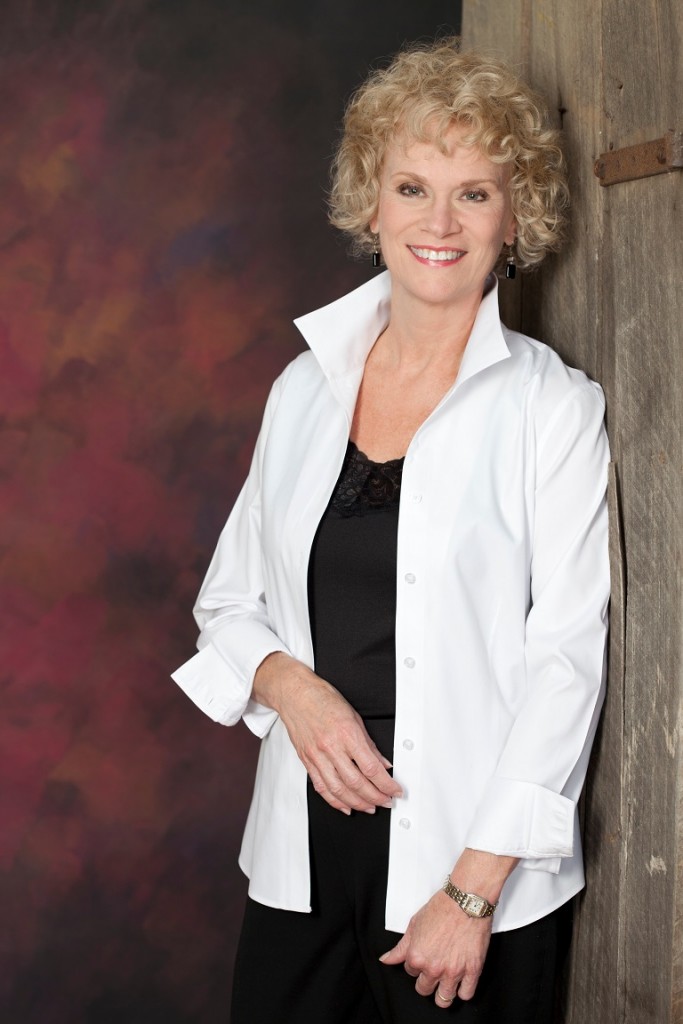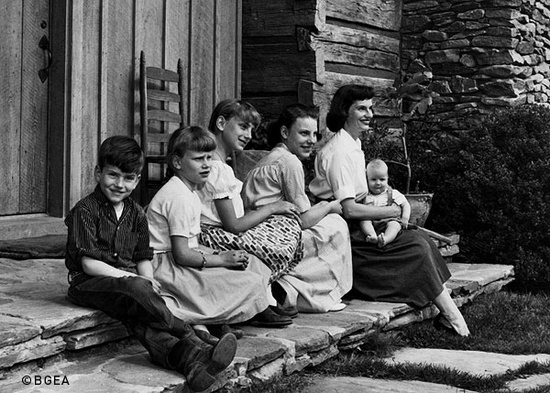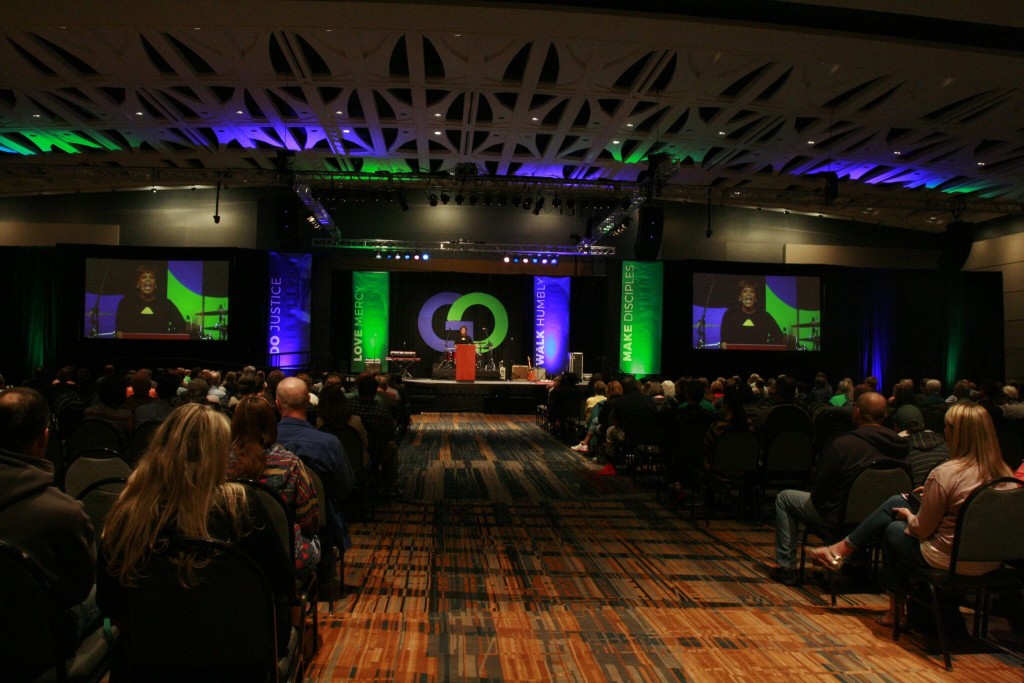Ruth Graham has them covered
© Kimberley T. Edgar 2017
EAST PROVIDENCE, R.I. – She makes no mistake – she is clear: The reason Good Morning America and other news outlets have interviewed her, the reason she is speaking at the Go! Conference this month, the reason The Good News Today is speaking with her now for this article is she is Billy Graham’s daughter.
Growing up as a child in the home of the famed, globe-trotting evangelist has given her, her siblings and other members of their family a platform. But apart from her role as the third daughter – the middle of five children – in Billy and Ruth Bell Graham’s brood – born and bred in the mountaintop home her mother, Ruth Bell Graham, designed – Ruth Graham has her own story to tell.
Part of her story – her take on the first chapters of her life growing up under Billy Graham’s roof at Little Piney Cove, in Montreat, N.C. – she believes few will understand and many will misunderstand. But years of therapy have empowered her with courage to share publicly that while she “absolutely adores” her daddy, her home had its share of dysfunction, and it wasn’t easy growing up in her family.
Anyone could see and guess it, she said, with her father being away, traveling so much on evangelistic crusades to share the love of Christ and the Gospel message with the rest of the world. But she is pragmatic: God allowed it – as He has the all the events in her story – and He will use it for His glory.
“Being Billy Graham’s daughter – no, Billy Graham THE EVANGELIST’s daughter – was very difficult,” said Ruth Graham, as she likes to be called. “I grew up with a sense of abandonment. It wasn’t real, but that’s what I felt: He wasn’t there to tuck me into bed at night or to greet me when I got home from school. This little girl’s heart wanted my daddy to be there to comfort me when I skinned my knee. I felt abandoned – that’s why I looked for security in men, and that was a dead-end for sure.”
Four divorces and a host of all-too-familiar-to-the-rest-of-the-human-race family issues later, Ms. Graham has surrendered her “mess” to God to proclaim His message of hope, help and healing.
“All of this is a process. Nothing’s immediate,” she said, referencing the Scripture verse from 2 Cor. 5:17, talking about becoming a new creation in Christ. “So many people think it’s immediate. But, no, it’s a process. It takes all of life to try to get it right. Forgiveness is a process, and sometimes we have to do that for the rest of our lives – we have to do it over and over and over again. It’s not necessarily because of a lack of spirituality or obedience, but we are a people of process.”
She is one of several people headlining Vision New England’s 2nd Annual Go! Conference Feb. 17-18 at the DCU Center in Worcester, MA, where the creators of Congress – long the hallmark conference to encourage, equip and unite the region’s evangelicals and disciple-makers – seek to put a fresh face on the forum.
 Go! Focuses on Micah 6:8: “He has showed you, O man, what is good. And what does the LORD require of you? To act justly and to love mercy and to walk humbly with your God.” It also builds on the Great Commission outlined in Matthew 28:19-20 to “go and make disciples.”
Go! Focuses on Micah 6:8: “He has showed you, O man, what is good. And what does the LORD require of you? To act justly and to love mercy and to walk humbly with your God.” It also builds on the Great Commission outlined in Matthew 28:19-20 to “go and make disciples.”
Ms. Graham seems to be a natural fit. In addition to the natural interest the Graham family would have in evangelical efforts such as this, she has some ties to New England as a former student at Gordon College and a speaker at Iron Sharpens Iron for Women a couple years ago in Worcester.
But perhaps most important, the Ruth Graham Ministries founder and president has written several books based on her own experiences that include heartache and loneliness – “Fear Not Tomorrow, God is Already There” and the award-winning, “In Every Pew Sits a Broken Heart” are a couple titles to her credit.
“Her life went off the rails, and she has been the recipient and beneficiary of incredible mercy,” said Drew Crandall, President, Keep In Touch Ministries and a Regional Advisor for Vision New England who serves on its GO! Conference organizing team. “She is very transparent and sincere and eager to be used by the LORD to minister to souls in New England.”
WALK HUMBLY
One of her first, public experiences of listening to God and walking humbly before Him came as an 11-year-old, when she responded to an altar call at a revival meeting led by one of her father’s friends.
“Wherever we went, people noticed. Daddy was always pointed out. You could see them watching you, whispering,” she said. “I wanted to go forward because the LORD had touched my heart, but I was self-conscious. “ She was beginning to learn she had an , and He was the One she needed to please.
She finally decided she could do it with everyone watching and mustered enough courage to walk forward. “I stood there with my head bowed. I heard people behind me shuffling to come forward. I felt a hand on my shoulder. I looked over, to see who it was,” she said.
With her stolen glance, she saw that it was her father who had come up behind her and placed his familiar hand on her. “It was comforting,” she said. “He called thousands at an altar call, and here he was standing with his daughter which I thought was really sweet.”
Fast forward to 1987, when life as she knew it began to take more twists and turns than the country road that climbs and curves to her parents’ home. That May, events began to unfold that would result in her responding to an altar call of a different sort.
After 18 years of marriage, she discovered her husband had been unfaithful to her while they had lived in Texas. Married at age 18, Ms. Graham tried to mend their marriage but couldn’t. After a couple years, she lost hope and divorced her first husband for infidelity.
She had just turned 40 when the divorce became final in March 1991. She struggled to make a go of it as a single mom. A housing option she had so hoped for in the Shenandoah Valley region of Virginia, where they lived, fell through. It seemed that almost overnight she was packing up and moving to Ft. Lauderdale, Fla., for a fresh start near her oldest sister, Gigi.
It was Gigi and others who introduced her to a widower, highly recommended by several in his church, and he began to sweep her off her feet. Then the warnings began to sound: Her children didn’t like him, and her parents advised against the marriage. He pushed too far, too fast with their relationship. Still, she was unused to managing her own life, and he seemed so in control and capable of caring for her.
Thinking her family didn’t understand what life was like as a divorced single-parent, she decided to do things her own way: Six months after having met him, she married him, on New Year’s Eve 1991. But within 24 hours, she kicked off 1992 knowing she had been mistaken in her decision.
She became afraid of him and didn’t know what to do. She was about to lose her alimony from her first husband. She had no career or training – she hadn’t been expected to work. “I made a decision my father told me not to make,” Ms. Graham said. “I had always followed the rules, and I still do, but at that point I had had it – I said, ‘God, I have had it. I am tired of doing it Your way.’ I was very stubborn and willful and did it anyway. I discovered it was wrong and had to go see them.”
While Billy Graham may not have been there to bind up a skinned and bruised knee when she was a child, he was there for his broken and worn little girl packaged inside his 40-year-old daughter’s body when she stepped out of the car at his house after a two-day drive.
“When I got to the house, my father was standing in the driveway,” she said. “He wrapped his arms around me and said, ‘Welcome home.’” She stayed with them for several weeks, and during that time, she attended the church in which she had grown up. One Sunday, the pastor, Calvin Theilman, was preaching from Luke 7:36-50, about the woman of ill repute who shows up with an alabaster jar of perfume at a dinner party where Jesus is and anoints Him with her tears and the perfume. The point that struck Ms. Graham is that brokenness offers a sweet fragrance to God, but the vessel that contains the perfume has to be broken before its fragrance can be released.
When the sermon ended, the organist began to play for the final hymn but, for some reason, paused. At that moment, the pastor invited anyone who may feel broken to come forward to the altar to do business with God. Ms. Graham felt the same tug and pull at her heart that she had felt as an 11-year-old at the revival meeting. And the same type of thoughts that had flooded her mind then kept her as still as a marble statue that day: How will this look to everyone for ME to come forward? But I’m Ruth and Billy Graham’s daughter. They’ll think something was wrong.
She hesitated. No one else was moving forward. But as the music lilted to a close, she could resist God’s call no more. She was the only one to step forward in brokenness and humility that day: toe-heel, toe-heel, toe-heel, toe-heel toward the altar. Left foot. Right foot. Left foot. Right foot. One foot in front of the other until she was there at the front of the sanctuary.
“They all saw me, and at that point, I didn’t care,” she said. “As Christians, we are called to walk humbly, which means that none of us is any better than the other. We are all sinners saved by grace.”
Where her father had walked up behind her so many years before, this time, it was her heavenly Father Who laid hands on her after the pastor ushered her into his office with his assistant closing the service, and she unburdened herself before her LORD.
“As I confessed, it was as though Jesus was taking each load off of my shoulders,” she said. “I am so grateful.”
LOVE MERCY
Having given her heart to Jesus at age 7, when she knelt at her bedside beside her mother and found sweet salvation at the Cross of Christ, Ms. Graham knows as well as anyone who has put his or her trust in the LORD the importance of the tandem themes of grace and mercy.
But it wasn’t until she was an adult, married with three children of her own that she began to plumb and fathom more fully the depths of God’s divine grace and mercy as she found herself with a need for them that she had never known.
After learning of her first husband’s infidelity, her own life began to disintegrate into bouts of depression, anxiety and even suicidal thoughts. She would go on to see four marriages crumble to shambles. One daughter battled bulimia, another carried two out-of-wedlock babies, and her son dabbled with drugs. She couldn’t help but feel responsible for helping create their messes as well as her own.
It’s against that backdrop, that God set the stage to teach her about the depth of His mercy – and the need for each one of us to give and receive it. And it’s that very topic she has been asked to speak at the Go! Conference.
“I love that topic – that’s what I’m all about,” Ms. Graham said. “My father is the one who showed me grace and mercy. When I stepped out of my car, he knew I had been through the repentance part and that I was lower than a belt buckle. It changed my life and informs what I do today.”
It’s hard to find mercy without grace – the two go together, she said. “Though, very often, we love getting grace and mercy, but we don’t want to give it. We find it so very hard to give mercy to people who have wronged us, but that’s what we’re called to do. It’s not easy. It’s hard,” she said.
She wrestled with it as she struggled to forgive and extend mercy to her first husband for his infidelity to her. She needed it after she disregarded the advice of her circle of support and found herself standing at the alter before God in her home being wed to a second husband whom she didn’t really love but who had swept her off her feet with seeming promises of security and strength.
God gave her the opportunity to practice extending it to others when her own children struggled with their problems and with each of the four marriages she’s had. “It’s hard to do,” she said. “It’s much easier to be judgmental.”
Even after years of experience in learning how to extend mercy and grace with circumstances in her own life, she had to catch herself in the closing days of the Obama Administration, when she learned of one of the 44th president’s pardons.
She prefaced her remarks, saying it was, perhaps, “too political” to discuss but went on to share she had been shocked when Barak Obama commuted the sentence for the former Army soldier responsible for stealing and feeding 750,000 pages of documents and videos to WikiLeaks. “That’s crazy,” was Ms. Graham’s initial reaction, she said.
But then she got to thinking that the transgender Chelsea Manning – born male, as Bradley Manning – deserves mercy and grace as much as the rest of us. “It goes against my nationalistic Christianity,” Ms. Graham said. “Americans are bad about it – ‘I don’t want to give her grace.’ Yet how many Christians in this country will reach out to her? That’s an indictment on us.”
She shared a similar reaction that came to her when prayers were offered for the hijackers and other perpetrators involved in the Sept. 11, 2001, terrorist attacks. Others in their prayer group asked, “How could you do that?” On the one side, mercy is soft and gentle and loving and kind, she said. But mercy is not simply hearts and flowers and roses. Mercy has backbone to it, too.
“We are called to be people of mercy, but mercy has boundaries,” she said. “We often give mercy without talking about justice, but justice has to be done. If justice is not done, and you give mercy, it waters down mercy. It doesn’t make it as powerful as it really is. If we just wipe the slate clean and go on, we haven’t done justice.”
DO JUSTICE
She needs only to point to the central figure of the Bible – all of history and humanity and eternity – to make her point. “Jesus wiped the slate clean, but look at what it cost Him,” she said.
It’s not as though God just pardoned us sinners, and that was it. He took all of humanity’s sin – past, present and future – and heaped it on the able, capable shoulders of His Son, Jesus Christ, and poured out His wrath upon Him as he hung from the Cross. Somebody had to pay the price for our sin, and it was Christ.
Too often, though, the Church and people in the Church are harsh and quick to dispense judgment grounded in their sinful human estate in the name of justice, she said. She has felt it herself, and at one point, it had gotten so bad, she railed against the legalistic mindset, deciding she wasn’t an evangelical – or even a Christian – anymore.
“I went through that period of saying that Christians are judgmental or that Christians can be ugly,” she said. But that embrace of grace and mercy her father gave her when she came home from Ft. Lauderdale communicated without words how we all should be to each other, she said. And having received it, God gave her the opportunity to give it within a couple years when her youngest daughter came and told her she was pregnant.
“One of my daughters had two babies out of wedlock,” she said. “I could have killed her. At one point I told her she had to leave if she wasn’t going to live by my rules. She did.” While it broke her heart, she stood unwaveringly by her decision because she felt it was in her daughter’s best interest.
“I stuck to my guns and said, ‘I don’t approve of this lifestyle,’” Ms. Graham said. “She did have the babies and all and married a certain man.” That man came to her seeking her blessing on his marriage to her daughter. She told him if they waited a year, sought marriage counseling, put the LORD first and came to grips with Who Jesus is, then she could feel more comfortable extending that permission.
“I almost didn’t go to the wedding,” she said. “But others came to me and said, ‘Ruth, you need to go. Just love her.’ I came as a guest, and it took them a long time to get over that. She and I speak together, but my son-in-law still doesn’t quite understand, and they were married 10 years ago.
“But I had to speak my convictions,” Ms. Graham said.
Today, Ms. Graham and her children have taken their mishaps, turned them inside out and made them into a ministry to bless and serve others. Although she lists her pet peeve as messiness, she recognizes that the very mess that God has allowed in her broken life has presented her with the opportunity to comb through the ruins for the lessons He has given her to build afresh and anew. And she is glad to share those lessons with others.
“What’s really important?” she asked. “To have a relationship with the friend sitting there in front of you? Or, do you need to clean up the room first?”
Where she and her father have shared an Audience of One in their ministries, her father’s efforts reached to the masses of unbelievers seeking to gather them into the flock of Jesus Christ while hers reach believers sitting in church pews shackled and burdened with broken hearts and dreams.
“My ministry is really to the church,” she said. “God is using my life to minister to other people. It is a messy life, and there are a lot of things my enemy tries to make me carry. But Jesus loves me and carries my burden, and it’s not about me. It’s about people in the conference learning something about the Lord through it. My audience is an Audience of One.”
And so, as she unpacks her spiritual first-aid kit at the Go! Conference this month, remember that while she may well be the daughter of Billy and Ruth Bell Graham, she is first and foremost a daughter of the King. She has a voice to speak, a work to do and story to share in her own right.
To learn more about the upcoming Go! Conference visit www.GOCONF.org











